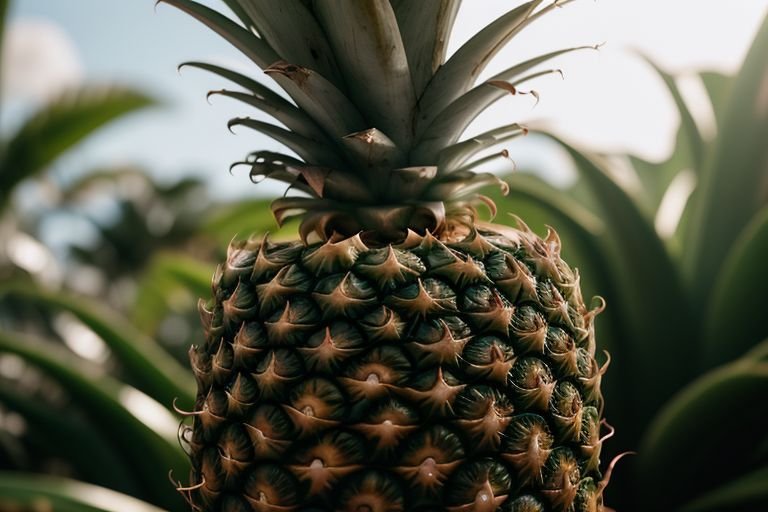In a surprising turn of events for the UK’s agricultural sector, green pineapple production has surged by 19% in the past year, marking a significant shift in both farming practices and consumer preferences. This dramatic increase highlights a burgeoning trend in the UK’s fruit industry and reflects broader changes in agricultural practices, market demands, and environmental considerations.
Green pineapples, known for their tangy flavor and vibrant hue, have traditionally been associated with tropical climates far removed from the temperate zones of the UK. However, recent advancements in greenhouse technology and sustainable farming techniques have enabled British growers to cultivate these exotic fruits on local soil. The surge in production is attributed to a combination of innovative agricultural practices and a growing consumer appetite for diverse and exotic produce.
Modern greenhouse technologies have played a pivotal role in increasing pineapple yields. Controlled environments allow for year-round cultivation of crops that would typically struggle to thrive in the UK’s climate. These high-tech facilities maintain optimal temperature, humidity, and light conditions, simulating the ideal environment for pineapple growth.
Sustainable Farming Practices:
The rise in production is also closely linked to the adoption of sustainable farming practices. British growers are increasingly employing hydroponic systems, which use nutrient-rich water solutions rather than soil to grow plants. This method reduces water usage and increases efficiency, making it a favorable choice for producing high-yield crops like pineapples. Additionally, the integration of renewable energy sources, such as solar panels, has further supported the environmental sustainability of these operations.
Consumer Demand:
A noticeable shift in consumer preferences towards exotic and unique fruits has fueled the demand for green pineapples. The fruit’s distinctive taste and nutritional benefits have caught the attention of health-conscious consumers and culinary enthusiasts alike. The rising popularity of tropical fruit varieties in UK supermarkets and restaurants reflects a broader trend of diversifying fruit options available to the British public.
Economic Incentives:
Government incentives and subsidies aimed at boosting domestic agriculture have also played a role. Initiatives supporting innovation in farming technology and sustainable practices have made it financially viable for producers to invest in green pineapple cultivation. This support has been instrumental in offsetting the initial costs associated with setting up high-tech greenhouses and other advanced farming infrastructure.
Economic Impact
The 19% increase in green pineapple production has significant economic implications for the UK’s agricultural sector. The expansion of this niche market has created new job opportunities, from greenhouse technicians to logistics personnel, contributing positively to local economies. Furthermore, the growth of domestic pineapple production reduces reliance on imports, enhancing food security and contributing to the UK’s trade balance.
Retailers have reported a marked increase in sales of green pineapples, with consumer interest driving a rise in market value. Supermarkets and specialty stores are now featuring green pineapples prominently, with some even launching dedicated promotional campaigns to highlight the fruit’s availability and benefits.
Challenges and Future Outlook
Despite the impressive growth, the industry faces several challenges. The cost of maintaining advanced greenhouse systems and hydroponic technology can be substantial, and producers must continuously adapt to evolving consumer preferences and market conditions. Additionally, the industry must navigate environmental concerns related to energy consumption and resource use, ensuring that growth remains sustainable in the long term.
Looking ahead, the future of green pineapple production in the UK appears promising. Continued advancements in agricultural technology and increased consumer demand for diverse produce are likely to drive further growth. Collaboration between researchers, producers, and policymakers will be essential in addressing challenges and maximizing the potential of this burgeoning sector.
The 19% increase in green pineapple production in the UK represents a significant milestone in the evolution of the country’s agricultural landscape. It reflects a successful blending of technological innovation, consumer trends, and sustainable practices. As the UK continues to explore new possibilities in fruit cultivation, the green pineapple stands as a testament to the adaptability and forward-thinking nature of British agriculture. The rise of this tropical fruit in the UK market not only diversifies consumer options but also underscores the dynamic and evolving nature of modern farming.






















+ There are no comments
Add yours